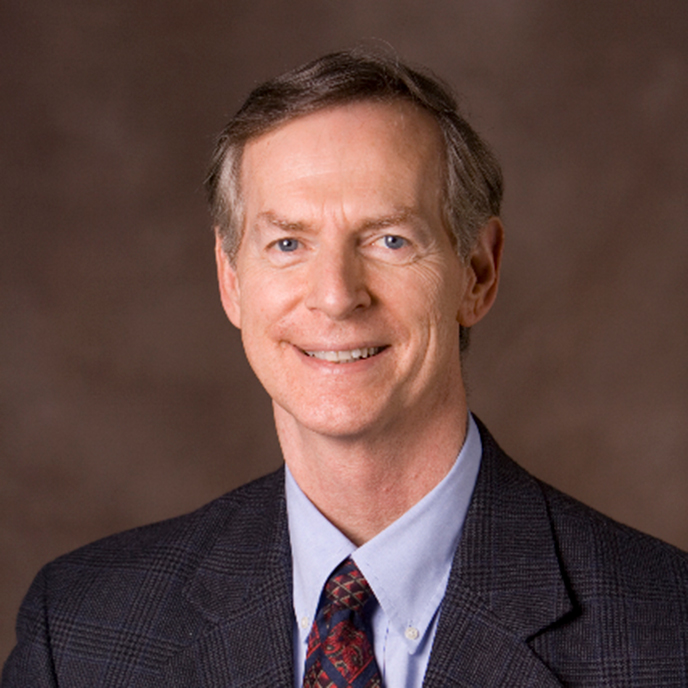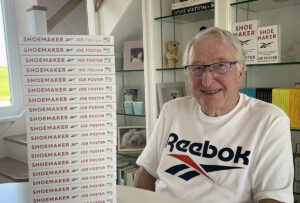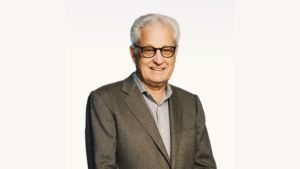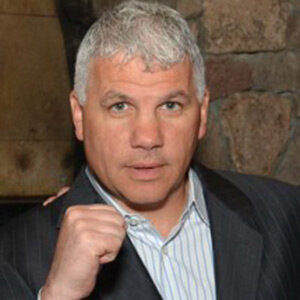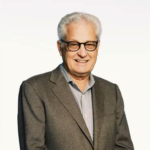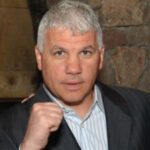View this episode's trailer
Episode Description
Dr. Russell Blaylock, retired neurosurgeon and author of Natural Strategies for Cancer Patients and his monthly newsletter, The Blaylock Wellness Report, with over 100,000 subscribers shares his lifesaving knowledge and expertise on the use of nutraceuticals and why they aren’t more common in treatment, particularly cancer treatment. For Dr. Onik and Dr. Blaylock, the medical establishment isn’t accepting these new treatments as rapidly as they would like for the good of their patients.
Listen to find out why.
Dr. Blaylock’s own interest in alternative treatments arose because he was disappointed in results using chemotherapy, which oftentimes makes the outcome for the patient worse by doing damage to healthy cells, thereby increasing the likelihood of secondary cancers. However, you see the opposite with natural substances and immunotherapy. The science behind these treatments is so sophisticated now that the orthodox medical community cannot ignore it. In fact, combining low dose chemo with nutraceuticals yields better results than higher dose chemo—and patients feel better while undergoing treatment.
The best weapon against cancer that we have is immunotherapy. Immune cells can destroy virtually every cancer and every cancer cell in every case if we learn how to properly harness it. We’re just now rediscovering what was known a hundred years ago.
Listen as Dr. Blaylock Reveals…
- What He Thinks of Supplements.
- The POWER of Observational Medicine.
- Fraudulent Behavior in the Pharmaceutical Industry.
- The “MAGIC” and SCIENCE Behind Natural Treatments.
- How to Find an Oncologist with Views Compatible with Your Own.
- The Role of God, Prayer and Faith in Healing.
Dr. Blaylock’s book is available where most books are sold. To learn more or subscribe to his newsletter visit https://www.blaylockreport.com/.
For over 40 years Dr. Gary Onik has been pioneering advances in cancer treatment that have rocked the field of oncology, inventing an entirely new branch of cancer treatment now known as “Interventional Oncology” based on his innovative minimally invasive techniques. Both doctor and patient, he created a cancer vaccine and successfully treated his own terminal prostate cancer using his invention. In addition to his medical practice, Dr. Onik is an Adjunct Professor of Mechanical Engineering at Carnegie Mellon University, working closely with his colleagues to develop the next generation of cancer fighting technologies. His latest work, using immunotherapy to treat metastatic cancer, offers hope to those patients with literally no other options.
TO CONTACT DR. ONIK visit https://www.garyonik.com/.
TRANSCRIPT
Dr. Gary Onik [00:00:00] Hello, I’m Dr. Gary Onik, and I’m your host for Cancer is Tough, but YOU are TOUGHER! I want to thank The Beach Boys for allowing us to use their piece of music that is dear to my heart. My podcast is uniquely personal. I know both sides of the cancer equation. I am a cancer specialist and researcher, as well as a cancer patient and survivor. I will address various treatment modalities in the podcast, but that’s not really what this podcast is about. This podcast is about the unique cancer journey that a patient and their family and friends take when they are diagnosed and treated with this dread disease. We’ll delve into the inner emotional and spiritual resources. Patients and their loved ones need to address their concerns of choosing a treatment strategy that will harmonize with their worldview while grappling with state-of-the-art treatments versus alternative treatments. When I was asked who’s going to be my target audience, the obvious answer was everyone. It’s a rare person that has not had cancer touch their lives, either as a patient, a family member or friend. If you’re that rare person that hasn’t had cancer touch their lives, almost certainly at some point, cancer will drag you into its maelstrom. I hope that you find this show both a resource and a comfort in dealing with your cancer journey.
Dr. Gary Onik [00:02:21] Russell Blaylock is an author and a retired neurosurgeon. He is the 2004 recipient of the Integrity and Science Award granted by the Weston A. Price Foundation. We’d all like to think we have integrity, but you actually have an award that shows it. He is the author of a number of books and articles in the medical literature. The book we’ll be focusing on today will be the Natural Strategies for Cancer Patients. He also writes a monthly newsletter, The Blaylock Wellness Report, which has a subscriber ship of over 100,000 people. I consider him a friend and I owe him a personal great debt since he helped me develop a natural strategy for my metastatic prostate cancer that I was diagnosed two and a half years ago with. It is with great gratitude that I let you know that I am still… I still have a PSA of 1.4 and no evidence for metastatic disease. Dr. Blaylock, Russell, thank you for joining us.
Dr. Blaylock [00:03:32] Thank you, Gary. Appreciate it.
Dr. Gary Onik [00:03:35] So you’re a neurosurgeon and you’re in private practice, but you, you had an academic bent. I mean, you were publishing articles in the medical literature and writing books. What made you become involved in the metabolic and alternative treatments for cancer? It seems like a circuitous route.
Dr. Blaylock [00:03:58] Well, I’ve always been interested in cancer even before I went to medical school, but as a neurosurgeon, most of the time these metastatic tumors presented brain tumor or spinal cord metastases. So, it’s very common for a tumor of various types to metastasize first. That may be the first symptom, the neurological symptom, either seizure or paralysis in the spinal cord, which we frequently see with breast cancer and lung cancer, an onset of paralysis is very quick, and if it occurs too rapidly, it can be permanent. So that put me in contact with a lot of tumors other than CNS tumor, tumors of the brain and spinal cord. My metabolic interest in it was that as I looked into chemotherapy and followed a lot of patients that were under chemotherapy, I was quite disappointed in it and did not seem to work, except in very, very limited cases. And generally, even today, what we say is that if the tumor is not metastasized, chemotherapy may be of some value. But of course, other treatments like surgical resection can be successful in one of those instances. But once the cancer spreads, once it spread to other parts of the body, the chance of chemotherapy and radiation therapy curing the cancer, it falls very dramatically. I mean, no more than five to ten percent of the cases will experience long term recovery or survival. So, it was not very successful. So of course, I’d open it up to different treatments. And as I got to looking into the metabolic and natural compound, what you see is a tremendous difference, and the difference is, when the chemotherapy it targets a single mechanism in the cancer, two mechanisms that [inaudible] ah, it is very easy for the cancer to bypass that; it has metabolic ways to bypass it. With natural substances, what you see, is it attached to numerous cell signaling processes that are essential to the cancer and therefore it shuts down so much of the cancer process that the cancer can’t overcome it. When you combine treatments, you see dramatic improvements in the treatments. And lately, what we’ve seen is if you cut the dose of the chemotherapy dramatically, even half the dose or less, and combine that with the natural treatments, you get far better results than if you use the chemo alone. Unfortunately, what we see is the idea, well if the chemo didn’t work we need higher doses. We need super doses. And of course, chemo is not selective. It doesn’t differentiate between normal dividing cells and cancer cells, so it does an enormous amount of damage to the rest of the body. Some of it is irreversible. For instance, like chemotherapy with breast cancers and lung cancers, we see damage to the heart that leads to a progressive heart failure that does not respond to the usual heart medication. We see damage to the kidneys, to the liver, to the bone marrow, GI damage that’s, a lot of this damage is irreversible. And what we’re really seeing is a tremendous increase in secondary cancers caused by the treatment. Most people are not cognizant of that, and their physicians don’t really emphasize that or even tell them that. Now, chemotherapy has that problem, but you don’t see that with natural substances. In fact, you see the opposite. The natural substance is highly selective. It only damages the cancer cell, and it enhances the strength and the health of the surrounding cells. So, they’re better able to resist the cancer effect, and they’re better to resist chemo and radiation therapy. So, what we’re seeing is the best of all worlds. It’s the magic bullet that started out the whole chemical treatment of disease. You want something that only attacks the disease, part of the organism, and not the rest of the organism. And that’s what that offers to us.
Dr. Gary Onik [00:08:17] You’ve told me all these great advances we’ve got coming down, that are here, but you must, as a pioneer in this field, sometimes feel that maybe the medical establishment isn’t listening to you or taking up these new concepts in as rapid a method as would be good for patients.
Dr. Blaylock [00:08:43] Yeah, that’s true, and I think what we see here is there’s such a powerful influence of the pharmaceutical industry. They pour just millions of dollars into medical universities, training programs for oncologists, medical journals, so that they control sort of the whole aspect of this debate. And we’re drowned out to the side. Now when, first we’re talking about natural treatments of cancer 50-60 years ago, we didn’t have a lot of science to explain it. It was mostly observational. But what we did see is the cancer cases that they were giving up on and told to go home and die, there’s nothing you can do, get your affairs in order, and what we saw was, well, they went to the natural treatment physician and these people were being cured. They were living very long periods of time, 20 or 30 years after they were told they would be dead within months. What we’ve seen is a whole lot of science explaining why these substances work. And now it’s become so sophisticated, the chemistry that the biological mechanism by which it’s operating, particularly through cell signaling, is so well defined, but the orthodox medical profession has ignored this or refused to look at it at all. And so, they don’t understand how scientifically based all of this is now. It’s got tremendous amount of science behind it. And many of them, the problems that have faced the chemotherapist and the radiation therapist, have been solved by these natural substances. For instance, one of the problems the chemotherapist has is that the cancer cell will reject the chemotherapeutic agent, it just throws it out of the cell mechanism. And we found that there’s a number of natural substances that will reverse that, so that now the chemo can easily enter the cell and kill selectively only the cancer cell, and it protects the normal cells that are surrounding it. So, despite the fact we solved one of their major problems, they still are ignoring it. The other was the suicide gene in the cancer cells are what we call p53 and p21 mechanisms. And every cell has this genetic mechanism. So if the genetics of that cell gets damaged too severely, and there’s a high risk of it becoming carcinogenic, those genes are activated and it kills the cell. Well, in cancer cells, those genes are mutated and won’t work. So, there’s the cell that cannot automatically commit suicide to prevent it from becoming cancer. And so, the cancer just grows unrestricted. Well, these natural substances will reestablish that p53 and 21 so that now the cell will do what it’s supposed to do in nature, that is kill itself if it becomes a cancer, or has a high risk of becoming cancer. So, all of these major problems we’re seeing in cancer, which has never been solved by chemotherapy, in fact just makes it worse, we’re now seeing you can solve almost all of these with these natural substances.
Dr. Gary Onik [00:12:00] Along these lines, I mean, there’s no question that there are financial reasons why things don’t happen in the oncology world, perhaps the way they should, or slower to happen than they should. But I’m, you know, I’m always reminded of the story of Semmelweis, who had this idea that patients were dying from puerperal fever. Females, you know, were dying from a puerperal fever during childbirth because there was something on the medical students’ hands when they went from the autopsy room to the bedside to deliver these babies. And he was able to cut the death rate from thirty percent to two percent. And there wasn’t any major financial thing about it, but in his whole lifetime, his ideas weren’t completely accepted, and he died insane and penniless because of the stress that this placed him under. There’s got to be something else. There’s got to be some resistance naturally that we have to changing our thoughts and ideas as physicians. I try and do my best to keep an open mind because, you know, I think my patients’ lives depend on me being flexible and looking at new things. So, I think, you know, it’s a combination of both things.
Dr. Blaylock [00:13:32] Well, that’s true and what we see in orthodoxy throughout history, if we go back thousands of years looking at any orthodox organization, they are the elite of that society and they like that position. If you belong to the Royal College of Physicians, you belong to the Royal College of Surgeons and you’re the chairman of this, and this upstart comes along who has no real position, he’s unknown and he says, well, you know, you guys are killing these women. These women are dying by the hundreds of thousands, and I discovered a way to simply cut that death rate dramatically. Well, if the orthodoxy admits to what he said, they’re admitting to the fact because they didn’t observe this, hundreds of thousands of women were dying every year. And that’s a tough thing to say, they don’t want to admit that, that we’re responsible for these deaths? So, they dig in their heels, and they deny that he’s made an important observation. Well, you have to look at what’s the effect of that. Well, hundreds of thousands or more women die until finally the evidence is so overwhelming that they had to admit it in the court. By then most of these guys are dead or they retired, and so they don’t have to answer for what they did and the fact that they had this intransigent viewpoint that I’m just not going to look at it and I’m not going to admit it until I’m retired or I’m gone. And that saves them this embarrassment. And even worse, you know, nowadays there’s lawsuits. So, if we find out that what you’ve been doing… Semmelweis is always the case we brought up because it’s so obvious. But there were many cases, you know, when they were using 100% oxygen on preemies and they were going blind. Well, the observation was this oxygen was doing it. They resisted that, too. So, a lot more babies ended up blind before they finally would admit, well, you’re right, it is. So, what we find is orthodoxy never changes until the evidence is so overwhelming, they have to, or else the old guard dies off and a new group of thinkers come along and accept new ideas. Now this is what’s happened with this natural treatment. The science has become so sophisticated—this is so well demonstrated—but the old guard has been resisting this, they don’t use it, it’ll interfere with our beautiful treatments and we’re the ones who save people. They don’t want to admit, well, millions have died because you would not look at this. Millions have suffered unnecessarily because you would not look at this. And so, they do just what their predecessors did. They keep denying it until they can retire or they die of old age.
Dr. Gary Onik [00:16:33] That’s a pretty good summing up of it. Unfortunately, we see it over and over and over again. Yet another example is what happened with H. pylori and ulcer disease for 10 years. People were having all of these major operations, vagotomies and having portions of their stomach removed. And nobody would believe that it was caused by a bacterium.
Dr. Blaylock [00:17:00] Well, the interesting thing in that case was that no one would have ever done this had he not become friends with the president of the gastroenterology associates, they became friends and the guys looked at what he had, and he said it’s convincing. So it was by his influence that he was able to get this even looked at, ever.
Dr. Gary Onik [00:17:25] I’m going to look too. I’m going to start looking for some powerful friends because I have a lot of stuff that’s coming down the pike that I would like to have picked up sooner rather than later. I had a patient come to me the other day and literally brought a suitcase full of supplements. A full suitcase. There’s a whole industry built around dietary supplements. How does a cancer patient sort through what’s well-founded and what isn’t, in this environment now?
Dr. Blaylock [00:18:00] Well, you have people who are just like in the pharmaceutical industry. If I develop a drug and I patent it and I tell you it’s a cure for whatever disease, you should be a little skeptical. I’m making a lot of money off of that. If I have developed the supplement and I’m selling it, you should be somewhat skeptical if I tell you it’s a cure for your disease. Now if I have no financial interest whatsoever, it’s just my pure academic interest or something I’ve stumbled across, and I have very good science that’s logically based or good observations that’s logically based, then you should look at it. Now it’s not accepted in this, this new world of, we’ve got to have a ten-million-dollar study that lasts ten years or twenty years. Well, look how many people die in ten or twenty years, then they say, well yeah, you’re right. Well, five million people died while you were playing scientists. In your observational studies, you’d say, well, if nobody, in my experience or anyone else’s experience, eighty percent are dying, ninety percent are dying, and now only thirty percent are dying when they take this substance, and everybody is seeing the same thing, that’s powerful evidence, and you should do it until you finish your little [inaudible]. But you say we’re playing, what happened is the medicine has started to play pure and applied scientists. He wants to say, I have to have this particular randomized clinical trial and no other type of observation is worth anything. And people are dying by the droves because this has taken over medicine. Now, who is the only group that can afford that kind of study, either government or pharmaceutical companies? The scientists, such as you or anyone else, they can’t afford a ten-million-dollar study and get twenty, thirty thousand, one hundred thousand people in the study. You can’t afford it. And of course, what happens with those kinds of studies is there are so many people, and how do you examine each one carefully to make sure you’re not making error? Semmelweis said you can look at all these parameters. And so, I value the observational study many times more than these big, expensive studies with all this statistical analysis.
Dr. Gary Onik [00:20:20] You know, my bugaboo about these studies is the statistics they use. There’s this hazard ratio and they give a number to the significance of what their results are. And if it’s above a certain thing, it’s OK; if it’s not, it doesn’t prove it. And yet you look at the results, the raw numbers and you go, I can’t see that this worked. I mean, there’s no great evidence that it worked. It’s not popping out of the page that it worked based on the raw numbers. These patients did well. And it drives me nuts. A good treatment should just pop out of the page. You should be able to look at and say, these are how many patients we did; these are how many patients had a complete response; these are how many patients didn’t. But the statistics of cancer studies is quite remarkable to me, sometimes in the way it’s played. I agree with you that to try and get nutraceutical or natural remedy that is not going to make anyone money or may take some value away from pharmaceutical companies, you’re going to meet these issues. And we’re facing it right now as well, with our immunotherapy regimen, we’ve got an FDA study. Right now, we’re dead in the water because we don’t have twenty million dollars to complete the study and we have something that I think is rather hopeful. So, you know, we’re living it right now.
Dr. Blaylock [00:22:01] Well, you see this, this is how the pharmaceutical has an advantage over you. Is that they know you can’t afford a 20-million-dollar study, and they have convinced, by their influence in medical centers and medical schools, that this is the only kind of study you accept. You don’t accept any other study. And they use relative incidence statistics. Well, there’s a statistician in Germany who’s a world-renowned statistician. He wrote a good book about it. He says, I have professors from Harvard University and Yale who come to my course, and I quiz them about these things, and he says not one of them understands it. He says, when I finish, they’re astounded that you’ve got to look at the real numbers, not use these things like relative risk. Now, for instance, you take statin drugs. Statin drugs in their advertisements use this very cleverly. They had all the physicians repeating its thirty percent reduction or heart attack deaths with statin drugs. But if you read in the little, tiny print under the ad, it says this was a reduction between six percent down to five percent, which was a thirty percent reduction, but if you don’t tell the patient, well, four out of six people, you may reduce it one person. And this is a very expensive medicine with a lot of side effects. Would you take it? No, I’m not going to take it. If there is a 99% chance it ain’t going to work, why would I take it? And that went on throughout the whole period that that drug was patented. Not one cardiologist, not an expert in the world, came forward and said, this is phony until the patent ran out. Then one of the top professors and one of the big universities says, we’ve oversold this drug. It is not near as good as we said it was. But he only said that when the patent ran out. This is the kind of game we’re playing, is that everything is big money and tight control by the pharmaceutical companies so that if you make an observation with the treatment you devise and you take a person who has, what would be considered certainly terminal prostate cancer, and its chances of survival is no more than ten percent with the best of orthodox treatment and you treat that person and ten years later they’re still alive and there’s no evidence of metastasis, and then you do ten more patients and you find eight of those ten had the same result. And then you do a hundred patients and you find eighty of those patients over a hundred, had the same result. Well, nowadays, in this… my view that we’re existing, they would discount this, because it’s not this gigantic, expensive study with all the statistical baggage. And, you know, statisticians constantly tell you, you know, physicians are used to laugh at them, they will come forward and say, well, it’s not statistically significant. They didn’t know what that meant because the statistician said, well, that doesn’t mean it isn’t true. That just means it’s not so overwhelming, you can see it, obviously, but it could still be that it works.
Dr. Gary Onik [00:25:16] You know, I’m going to differ with you a little bit on this in that, you know, I think that the FDA in particular is being very, very helpful in terms of wanting to get cancer studies, new cancer treatments approved. They’ve got conditional approvements, you know, they’ve got programs where there is an accelerated approval, where it gets approved and then you have to do further studies to knock it home. I think there is help out there. Obviously, the pharmaceutical companies… you know, I mean, they do some great things. They come up with some wonderful things, they go out and make money to be able to fund those things. You know, it’s like you’re stuck between a rock and a hard place. And I don’t think they’re evil people. I’ve got to say that. I think that you can’t expect people to do something strictly against their financial interests. I don’t know how to solve these problems. They’re definitely there, I think they’re holding things back. But I’m in the position where, you know, if I’m going to make what we’re doing fairly accessible, then I have to go through the system and do that because I have to get payment for it. But the studies that we are looking at to get these approved at least preliminarily under these accelerated approvals, they’re not that large, Russell, they’re 80 patients because the results are so dramatic. If they’re not dramatic, then you’ve got to do these huge, you know, studies. So, I’m really conflicted. You hear patients say all the time “there’s a cure for cancer and it’s being suppressed. We know there is a conspiracy to suppress cures for cancer.” I don’t think it’s a conspiracy. I think if it’s anything, it’s a conspiracy of interests where it’s against certain interests to pursue certain things that might be very beneficial and so, they don’t get done and we don’t have access to it. But that’s where you come in. That’s where you are doing your job. You’re letting people know about these things and you just have to wear a helmet while you do it.
Dr. Blaylock [00:27:47] Well, we do disagree on that, because I look into a lot of the corruption in the pharmaceutical companies. These companies have been sued for billions of dollars for fraud, for criminal activity. Tens of thousands, hundreds of thousands of patients have died because they covered things up. This is all been proved in the courtroom. We know that, for instance, with the Gardasil vaccine, they were sending female representatives into the House of States secretly to get the women legislators to push for mandatory vaccination with these vaccines. All of this is nefarious. All of it is, it’s not illegal, certainly it’s immoral and its poor ethical practices of these companies. We see every one of these companies is sued for huge amounts of money, for fraud and for violating these things. We also know that the FDA is getting a lot of money from the pharmaceutical companies, and I have numerous examples of how these companies have essentially bought and paid for the FDA. People think that the FDA has big laboratories and they study these things and they don’t. They will go to a company and say, you do a study and submit it to us and then we’ll approve your drug. And so many of these studies have been shown to be fraudulent, and the FDA approves it anyway, even though it was easily demonstrable that they were a fraudulent study.
Dr. Gary Onik [00:29:19] You know, but you’re right. The FDA doesn’t study anything, they just approve things. They approve what’s brought to them, and a lot of times the things that should be brought to them aren’t necessarily brought to them. But it’s good that we don’t agree on everything because that would make a boring talk.
Dr. Blaylock [00:29:39] This is an area that I spend a lot of time in, this fraudulent behavior and the control they exercise in publishing, medical societies, medical associations, media, they use their money. For instance, Robert Kennedy’s team has found that 70 percent of advertising in major media is pharmaceutical advertising. Now, do you think the major media is going to cover a story about a drug when 70 percent of their revenue comes from pharmaceutical companies? You know they can cover it up. And we’re seeing this more and more and more. Their power is increasing so enormously; they pay millions of dollars to congressmen and senators to get their protective bills passed. You know, the more you look into it, you’ll find out these are very, very nefarious organizations. I don’t trust them. Now, this is not saying they don’t make some drugs that are lifesaving, good drugs, of course, they do. They can’t make everything this pointless. But what we find out is that they use their influence in the FDA to get their things passed and sometimes this costs a lot of life. You know, like it happened when they were covering up the COX-2 investigation, which they had done before approval, and then it was approved and they found out the study knew it all along and the company knew it all along, and I estimate eighty to a hundred thousand people died as a result. So, this is costing lives when they do these nefarious things.
Dr. Gary Onik [00:31:13] I think the best example of that is the opioid issues, the crisis that occurred and what was covered up and how the OxyContin was pushed, and its negative effects were lied about. There are lots of examples, probably, you know, in every industry. The galling and sad part is that when you do it in the medical industry, people are hurt and die. You know, whatever we can do to minimize that, certainly is an important thing. I use my golden rule of medicine, and I’m probably going to say this on every episode of this podcast if we go past your episode… and that is that, you know, the Golden Rule Medicine basically says, I’m not going to do something to a patient unless I’m willing to do it. Have that. And I was so struck by one point in your book where you say that 80% of oncologists when they are surveyed say they wouldn’t have their own treatment?
Dr. Blaylock [00:32:21] That’s right. What my point being pharmaceutical companies, they have virtually taken over the treatment of cancer, and they make sure there are no alternative treatments presented that would endanger their billions in profit. I mean, chemotherapy has been so well disproven and dangerous, and the alternatives to it are so well demonstrated and improving the safety of even using those agents has been proven. And yet they fight it tooth and nail to make sure people don’t know about it and to make sure it never becomes popularized. Physicians will lose their license if they promote these agents. I mean, what you’re seeing is a tremendous takeover and they virtually say we own the treatment of cancer, and no one is invited in except us.
Dr. Gary Onik [00:33:10] Can’t argue that there is some examples, certainly of that, you know, show the point.
Dr. Blaylock [00:33:20] I mean, you look at immunotherapy of cancer. Cooley described this a very long period ago and yet it held up the immunological treatment of cancer until recently. Suddenly they rediscovered what he had said long ago, and a number of others have said, the book was about spontaneous regeneration of cancer. They all were showing that the best weapon against cancer that we had until now was immunotherapy, that immune cells can destroy virtually every cancer and every cancer cell in every case if we learn how to properly harness it. We’re just now discovering, rediscovering, what was known almost 100 years ago. And it was this one person who was demonized by the pharmaceutical company, everyone who tried it was demonized.
Dr. Gary Onik [00:34:15] Well, there’s no question that that is going to be the major forefront and going to be the area that changes things, I think ultimately for the better. That’s where the frontier is. It’s interesting that you say that scientists who discovered basically checkpoint inhibitors, which became the first major new immunotherapy treatment, that almost didn’t get approved. In terms of immunotherapy, I mean, I agree with you that’s where the future is. Along with the other things, we’re getting some remarkable results using the checkpoint inhibitors, but also those results are markedly supported, enhanced by the supplements that we’re giving patients, particularly curcumin. So, I think going forward, there’s, you know, this is going to be hand in hand. The movie breakthrough that documents Jim Allison’s kind of journey with checkpoint inhibitors, I found fascinating, because it was right on the edge of not actually happening. Some very big advocates had to come in and convince Bristol-Myers Squibb to continue a study that didn’t look like it was going very well, by giving new endpoints that were going to reflect whether this drug worked or not. I’d like to just ask you a question that I think can help cancer patients and their families. How do you think they can improve their journey and find an oncologist or caregivers that are more compatible with their thoughts about how they want to be treated? Do you have any feelings about that?
Dr. Blaylock [00:36:29] Yeah, I’m very adamant in the fact that if you develop cancer or a loved one, you should investigate these nutraceutical treatments because the effects that we’re seeing in particular cancers, is so profound. It’s almost a crime not to be using them. And even if you decide to use conventional chemotherapy, to use these, protects your normal cells against damage by the chemotherapy, which people don’t realize. A tremendous number of people who survive their chemotherapy are left with severely damaged hearts, kidneys, livers, and they have brain injury. It used to be thought that the chemotherapy agents don’t enter the brain, but they do. And now we know, and it’s accepted that all of these chemotherapy agents cause brain damage, which could be quite profound, particularly in young people, and that these nutraceutical agents can prevent that damage. So, you get the best of all worlds. What my deep investigation is showing, is that these nutraceutical agents enhance the effectiveness of the cancer treatments, traditional treatments, and make them far safer. You protect the brain, the heart, lungs, kidneys, intestine, and so you’re getting the best of all worlds when you combine. The latest evidence indicates if you cut the dose of these chemotherapeutic agents and combine them with this, you get even a better response. So, you can make this far, far more compatible with people’s experience so that you don’t get terribly sick and weak and brain fog and heart problems and arrhythmias just by using these nutraceuticals in a lower dose of the chemotherapy rather than higher dose. I’ve treated several patients who were on the super high doses of chemotherapy; put them on some of these compounds and one of the ladies had an interesting story. She said, I’d go to the clinic and everybody looked like death warmed over. So, I was sitting reading the magazine and just happy, and the nurse came up to me and said, well, you must be in the wrong clinic. This is for the people in the super high dose. She said, I am on a super high dose.
Dr. Gary Onik [00:38:57] But where do you… how do you find the oncologist that is willing to work with you in that way, willing to perhaps tailor your chemotherapy along the lines of what you’re talking about? I would think that that’s pretty hard to find.
Dr. Blaylock [00:39:18] Well, it’s easier to find today than it was 20 years ago. Cancer Centers for America, they combine the two forms of treatment. There are independent oncologists, particularly in the state of Florida, that do this all the time. Dr. Rosenberg, who has a practice in which he uses a lot of it.
Dr. Gary Onik [00:39:42] Literally, the last few pages of your book deals with what I think is perhaps one of the most important things you say in the book. And that’s the faith in the power of will. Can you tell us how a positive attitude and faith can have an impact on the results that a cancer patient can experience?
Dr. Blaylock [00:40:09] Well, it’s… one of the most important factors is to have a strength and belief that it is possible to recover from this, and unfortunately, most cancer patients are surrounded by people who have very negative ideas and negative thoughts and negative impulses. And that plays a big role in whether these patients can recover or not. Now, as far as the actual faith goes, this is not just your personal willpower, this is your creator. Prayer is very important, particularly lots of people praying for you. But we don’t make the decisions for God. And so, if it doesn’t turn out the way you wanted, we have to understand God’s wisdom is far greater than ours, far more great. So, while it’s not what you wanted, He knows what’s best. You don’t know what’s down the road had you gotten what you wanted. I have total faith in God. And if I pray to Him and it doesn’t turn out the way I want it, I accept that. And I know that my loved one is in a place that is far better than this one.
Dr. Gary Onik [00:41:25] In my experience, which was a first off brought to me by a patient who had a metastatic lesion from colon cancer. And it was central in his liver, it couldn’t be resected, chemotherapy at that time and now is still not curative in metastatic colon cancer to the liver. He refused chemotherapy and he had a prayer chain that went around the world, from his church and he got a complete response. And I saw him five years later, and he still had what was clearly a dead tumor in the center of his liver. So that really raised my awareness of this. And then when I was faced with my cancer, I made prayer a very big part of my treatment and made a video to get people to pray for me. So, with that, you know my experience. Tell us how you feel faith and a patient’s attitude toward that can have a tremendous impact on his or her outcome.
Dr. Blaylock [00:42:47] Well, as a Christian and a believer, a firm believer, I think it has everything to do with outcome. But as I say, you’re not dealing with Santa Claus, and you put in your request and you get what you want. God is far smarter than we are. He knows everything. He knows the future. He knows all aspects of life. And so, if we pray to Him and we want to survive and we want our loved ones to survive, and it doesn’t turn out that way, we accept God’s wisdom. We don’t question Him. We know that He knows best. And we thank him for all that He did do for our loved one and the knowledge that our loved one is beyond all suffering and grief and tears and is healthy and in a place that’s so far better than this one. I speak from experience. I don’t speak theoretically. That’s one of the mistakes people make is, well, I prayed and they died anyway. Oh, well, that’s the nature of existence. We don’t get what we want all the time. But sometimes it’s the best. It’s the best thing that could have happened, even though we don’t see it that way because we’re human, we’re selfish. We want our loved ones to stay here with us. And I’ve always said the most painful thing about losing a loved one is not that they go somewhere terrible or they’re gone and don’t exist anymore, it’s the separation that’s painful. They’re in heaven I’m here and I can’t see them, and I don’t watch them grow up, but I know that they’re well and they’re healthy and that they will never have grief again. They’ll never cry a tear. And so, I’m happy for where they are, but I’m in pain and I grieve personally because we’re separated. And it’s the separation that causes the grief.
Dr. Gary Onik [00:44:54] Well, I think on that note we’ve probably heard the most important aspect of this podcast. What I have seen in terms of how patients deal with the diagnosis, and particularly when it’s clear that whatever you’re going to be doing is not going to save their life, is that the patients who have faith, in some instances, they’re almost joyous strangely enough. They’re not afraid. They know they’re going to a better place, and you see how they deal with it in a different way. When a patient doesn’t have faith, it’s almost like they’re grasping on to anything because they feel that this really is the end. Russell Blaylock, I want to thank you for your insights and for the time you spent with us.
Dr. Blaylock [00:45:55] Well, thank you. I appreciate it.
Dr. Gary Onik [00:45:56] This is the segment where we discuss the hopeful aspects of both new cancer therapies and trends, as well as administration and regulatory aspects. Today, I would like to give you the news of probably what is the most important new trend in cancer therapy, and that is immunotherapy. Immunotherapy is making major advances in the treatment of previously untreated cancers. People who had really no hope are now finding that they are free of disease. I had a personal example, one of my colleagues, who is a very famous surgeon, had stage four melanoma and he had failed the usual therapies. And in the past, stage four melanoma was strictly a death sentence. He was started on one of the immunotherapies called a checkpoint inhibitor and his disease melted away, and he’s now four years, completely free of disease. So, immunotherapy has the hope of providing new treatments for diseases that previously did not have any efficacious avenue for the patient. I, myself, am an example of immunotherapy saving someone’s life that really had no hope. I was treated for widely metastatic prostate cancer with immunotherapy. It happened to be an immunotherapy of my own design, and if you’d like to see that story, you can go to A.K.A. Dr. Hope on the web and you’ll be able to find the videos on YouTube, which goes through my process of actually treating myself for my own cancer as strange as that sounds. Immunotherapy is particularly exciting because it’s a completely new modality. The future of immunotherapy is literally limitless. We are learning every day who to treat with immunotherapy, how to enhance its ability to treat patients that can’t be treated by immunotherapy now. And the excitement that immunotherapy is engendering in the oncology world is virtually palpable. The feeling amongst oncologists and researchers is that we finally have an approach that could completely change the future and finally conquer cancer. It’s going to be a long road. It’s going to need lots of resources. Sean Parker, one of the developers of Facebook, has started the Sean Parker Foundation for Immunotherapy and is literally putting hundreds of millions of dollars into research to advance immunotherapy. So, I think that this is clearly a hopeful trend in oncology. Exciting and hopeful is what I call it. Thank you.
Dr. Gary Onik [00:50:21] This is the segment of our show where we put our hand in our mailbag and pull out a question from one of our listeners. These questions are not about specific clinical situations for a particular patient. We can’t answer questions like that because we don’t have the information and all the medical records we would need to answer those questions properly. So, with that said, let me go to a question from Shirley from New York City. “I have terminal cancer, and my oncologist has told me that I’ve had all of the approved treatments I can have. I don’t qualify for a study that is testing a very promising drug for my cancer. Am I a candidate for use of this drug based on the Right to Try Act?” That’s an excellent question, and I’ve had some experience with this with my patients. Shirley, unfortunately, it hasn’t been a good experience. First, let’s go through the qualifications that you’d have; you meet most of them. You have to have a diet. You have to be diagnosed with a life-threatening disease. Obviously, terminal cancer, you know, meets that. You have to have exhausted all of the approved options for your cancer or your disease. You also fit because you’re not a candidate for clinical study or trial that is testing that medication. And a side to that is that, you know, clinical trials are very, very restrictive in who they allow to enter. You have to meet a whole litany of criteria. If you don’t meet all of them or you have a particular exclusion, you’re not going to be able to enter that study. But that doesn’t mean that that new medication couldn’t be helpful to you. So, you have to meet that criteria. You have to be given informed consent that goes through the known risks of the medication, although certainly there could be other risks. The medication has to have completed a Phase One study. A Phase One study is generally the study that’s done that assesses the initial safety of a new medication and also sets a safe dose; an efficacious dose for the medication. And also, the drug has to be in ongoing active development. For instance, if there is a drug that looks promising but the company decided, yeah, you know, we don’t want to pursue that medication anymore, you can’t get that drug under the Right to Try rule. So, you know, I think that you do fit the criteria. What’s the kicker in this? The kicker is the company does not have to give you access to that medication. What I have found in trying to get my patients some medications under the Right to Try Act is that the companies have been very unhelpful, and in my experience, have uniformly denied the use of the medication. I can’t blame them for that, because no matter what setting that medication is given and whether it’s a trial or under Right to Try, if there is a complication or problem with that medication, then that has to be reported to the FDA. So here you’re sitting as a company and you’re saying, Well, I’m running this study, and I’m trying to get the answers that I need to get this approved, and if I give this medication to a patient outside this study, I’ve got no upside, but only downside. The bad results have to be reported. And the good results, nobody cares. So overall, I have not been really happy with the Right to Try, although it was a pass with a lot of fanfare and hope, and that doesn’t mean that we can’t improve that situation by changing that law in a way that mitigates the risks for the company. So that’s my answer. I hope that your pursuit is more successful than my experience with the Right to Try.
Dr. Gary Onik [00:55:44] If you would like to ask us a question for the mailbag, you can go to garyonikmd.com. There is a contact form that you can fill out that will be forwarded to us, and we’ll consider your question for our show. Thank you for listening to our podcast. I hope that it provided you with some useful information, some hope and some comfort. Thank you very much.

